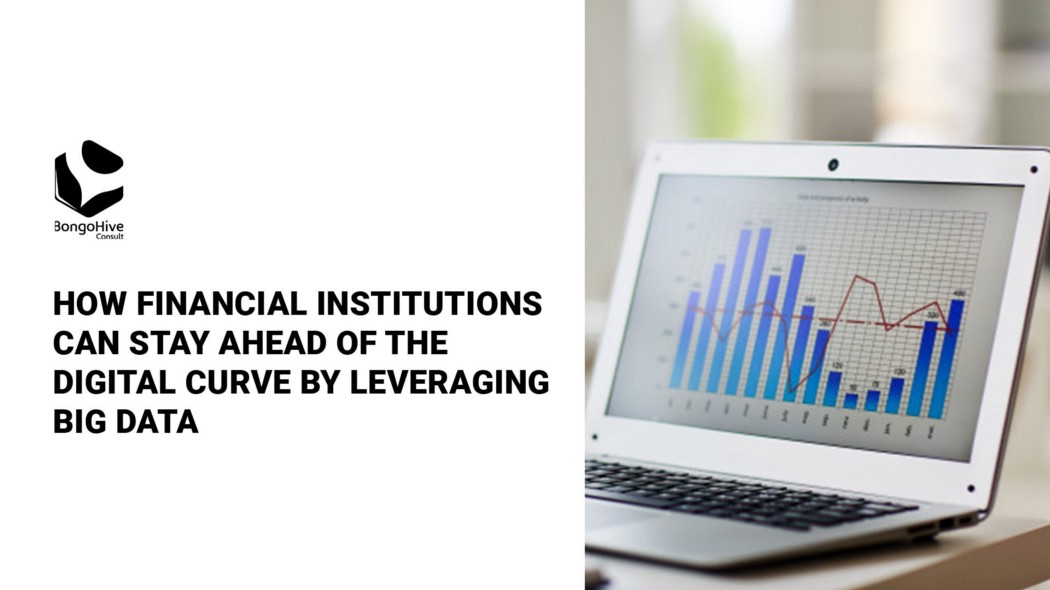
Big data is the large volume of data that is generated by various industries every day. This data can be analyzed for actionable insights such as human behavior and interactions. Big data has presented opportunities for financial institutions to improve business results by serving their customers in new and improved ways. As the business environment in which financial institutions operate is changing, so are customer needs and expectations. Financial institutions should, therefore, take advantage of these large volumes of data to examine what is driving consumer behavior.
While there are large amounts of data available, it is how they are analysed that matters. Big data analytics can help financial institutions make strategic business plans to meet financial targets.
Here are five ways you can use big data for business success:
Customer Segmentation
To meet your business goals, you need to move from a product-centric approach to a customer-centric approach. Big data analytics can facilitate your customer segmentation process by providing data on their demographics, daily transaction, purchasing behavior and so on. This way, you can develop products that are suited for each of your segmented markets. When you connect with your customers in a more meaningful way and satisfy their needs, you can guarantee your institution large sales volumes.
For example, When Barclays Bank launched the first money-sending app in Europe in 2012, many people were not happy by the fact that customers under the age of 18 couldn’t use the service. Through big data analysis from social media, Barclays discovered that there were negative comments about the app and the bank was able to rectify the problem by making the app available to users who are 16 years and above.
Risk management
Risks are a major concern in the financial sector and as a financial institution, preparing for risks should be among your top priorities.
Banks and other lending institutions face the risk of customers not paying back loans. On the other hand, insurance companies face risks of fraudulent health claims. Other financial institutions like investment firms face risks of failed investments if they do not grasp the market risks when investing.
The application of big data can provide an accurate risk analysis process. For example, banks and lending institutions can assess customers’ profiles and determine their eligibility for a loan.
Insurance companies can use big data analytics to analyse billing patterns to identify irregular payments.
As a financial institution, you need to prioritise the application of big data, either by having in-house experts or outsourcing to assess and manage risks in real-time.
Personalized marketing
Since customers can be segmented based on different dynamics, you can offer segment-based marketing where you can use one marketing campaign to target customers with similar characteristics.
Big data allows you to create highly targeted and personalised marketing content, which is vital for customer retention. By leveraging on big data analytics, your institution can save costs by tailoring marketing campaigns to specific segments that will engage with your content rather than aiming at a broader audience that won’t attach value to your message.
Big data can also help you determine which online platform customers regularly interact with so that you can use the right medium for your marketing campaigns. In this case, you can rely heavily on data from social media as it is a widely used online platform.
Cost Reduction
With the application of big data tools, you are able to streamline your internal operations by eliminating inefficiencies. You can use insights from big data to make more accurate decisions in order to optimise operations.
For example, a bank can use its transaction records to identify the busiest hours in order to plan for staff shifts, operating hours and several other administrative needs to provide cost-effective and uninterrupted delivery of services.
Big data insights can also help you implement the right marketing strategy by knowing which segment of customers to target for a specific product or service and the best way of reaching them.
Once you have information on which services are necessary and those that are not, you can plan how you will allocate your resources in order to avoid wastage.
Fraud detection
Financial institutions attract numerous fraud attempts. The severity of fraud is increasing and the perpetrators are becoming more advanced. Big data analysis comes in handy to detect fraud faster and even more precisely.
For example, banks can apply big data analytics to detect any unusual activity from customers by analysing their transaction history, spending patterns or their savings. The bank can act quickly by notifying the users or blocking irregular transactions, which might be an indication of a fraud.
Insurance companies can use predictive models to identify and stop fraudulent claims in the early stages.
Challenges with big data
With all the advantages that big data provides, it also poses some challenges in implementation.
Institutions with large volumes of data are primarily attractive to hackers, therefore, you need to make sure that the data you have remains safe at all times.
Another challenge with big data is the inability to generate insights on time. With all the data that is collected every second, it can be difficult for your institution to extract valuable data. You need to strengthen your methods of big data analysis if you are to get the most out of it.
Additionally, to get actionable insights from big data that can drive business growth, you will need to allocate resources to professionals who can manage your data. You can choose to have in house experts or outsource from individuals or organisations with the relevant skills. Alternatively, you can offer training opportunities to your current staff members to develop talent from within.
Despite the challenges of implementing big data, the benefits outweigh any risks. Big data allows you to generate more revenue once you target your customers with tailored marketing content and fulfill their needs. You can also be in control of your business environment by implementing calculated and risk-free business decisions. Adopting a data-driven approach and tapping into the full potential of big data can propel your business to the top.
We are open to discussions on opportunities that big data can unlock for your institution, connect with us!
 BongoHive
BongoHive